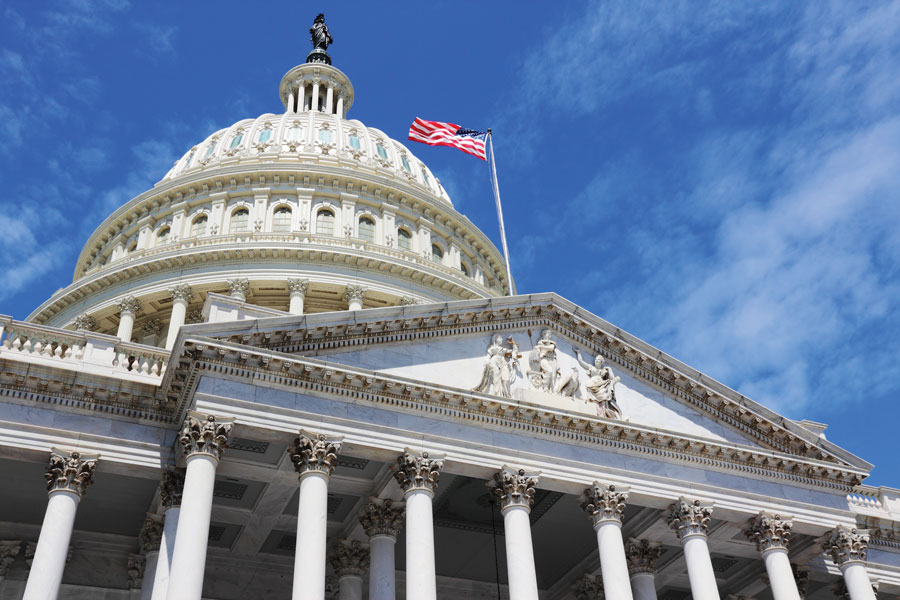

A major retirement savings bill that would raise the age at which retirees must dip into their retirement accounts is poised to take the first step on its legislative journey this week.
The House Ways & Means Committee has scheduled a Wednesday vote on the Securing a Strong Retirement Act. The bill — first floated last fall and now set to be reintroduced — is a follow-up to the landmark SECURE Act enacted in late 2019.
The 146-page bill — nicknamed SECURE 2.0 — would increase retirement coverage and enable employees to save more money for their post-work years, according to the legislative text and a summary circulated around Washington. One of its most important provisions would increase the required minimum distribution age for individual retirement accounts from 72 to 75 over 10 years.
Among its many provisions, the bill also would expand auto-enrollment and auto-escalation in company retirement plans, increase tax credits for small businesses that establish plans, allow catch-up contributions for people between the ages of 62 and 64, allow employers to match an employee’s student-loan payment with a contribution to the employee’s retirement plan, modify required minimum distribution rules to allow greater use of life annuities in qualified retirement plans and IRAs, and facilitate the sales of qualified longevity annuity contracts.
The bill “builds on a lot of the great work that’s been done in SECURE,” said Melissa Kahn, managing director of retirement policy at State Street Global Advisors. “It will cover a lot of gaps in terms of [retirement] coverage and savings.”
The Insured Retirement Institute cited recent research that shows Americans are concerned about their ability to save enough money to finance their retirement, said Paul Richman, IRI chief government and political affairs officer.
Their worries have been exacerbated by the coronavirus pandemic.
“That’s why [the legislation] is timely now to address the anxiety that workers, retirees and their families are feeling,” Richman said. “This bill does that with common-sense, bipartisan solutions. Our support for the bill remains staunch to get it done.”
This year’s Securing a Strong Retirement Act largely resembles the one introduced last October. Some changes were made to reduce the costs of the bill.
For instance, catch-up contributions after age 50 must be made on a Roth basis, where money that has already been taxed goes into the account and withdrawals are taken tax-free. In addition, a higher catch-up contribution level only applies to people who are 62 through 64, instead of anyone older than 60. The RMD increase from 72 to 75 now occurs between 2022 and 2032 instead of all at once.
Despite the partisan rancor that grips almost every debate in Washington, retirement savings policy has traditionally been a topic on which Democrats and Republicans can agree.
Last year, House Ways and Means Chairman Richard Neal, D-Mass., and the panel’s ranking Republican, Kevin Brady of Texas, introduced the Securing a Strong Retirement Act together. It has to be reintroduced this year because it did not become law in the last Congress.
The outlook this year is for more bipartisanship.
“I think it will be pretty much unanimous support for the bill,” Richman said.
Retirement policy lends itself to working across the aisle, Kahn said.
“No matter your political party, everyone wants to retire with dignity,” Kahn said. “This is an issue that hits home with everyone’s constituents.”
A wide-ranging retirement savings bill was written last year in the Senate by Sens. Robert Portman, R-Ohio, and Ben Cardin, D-Md. Another measure was offered by Sens. Chuck Grassley, R-La., Maggie Hassan, D-N.H., and James Lankford, R-Okla. Both have similar provisions to the House bill and must be reintroduced this year.
Richman said he expects the full House to approve Securing a Strong Retirement Act with a strong bipartisan majority. The challenge will then be to sustain the momentum in the Senate.
“We need to get this on high on [the Senate] agenda … to advance it sooner rather than later,” Richman said.

Some in the industry say that more UBS financial advisors this year will be heading for the exits.

The Wall Street giant has blasted data middlemen as digital freeloaders, but tech firms and consumer advocates are pushing back.

Research reveals a 4% year-on-year increase in expenses that one in five Americans, including one-quarter of Gen Xers, say they have not planned for.

Raymond James also lured another ex-Edward Jones advisor in South Carolina, while LPL welcomed a mother-and-son team from Edward Jones and Thrivent.

MyVest and Vestmark have also unveiled strategic partnerships aimed at helping advisors and RIAs bring personalization to more clients.
Orion's Tom Wilson on delivering coordinated, high-touch service in a world where returns alone no longer set you apart.
Barely a decade old, registered index-linked annuities have quickly surged in popularity, thanks to their unique blend of protection and growth potential—an appealing option for investors looking to chart a steadier course through today's choppy market waters, says Myles Lambert, Brighthouse Financial.
